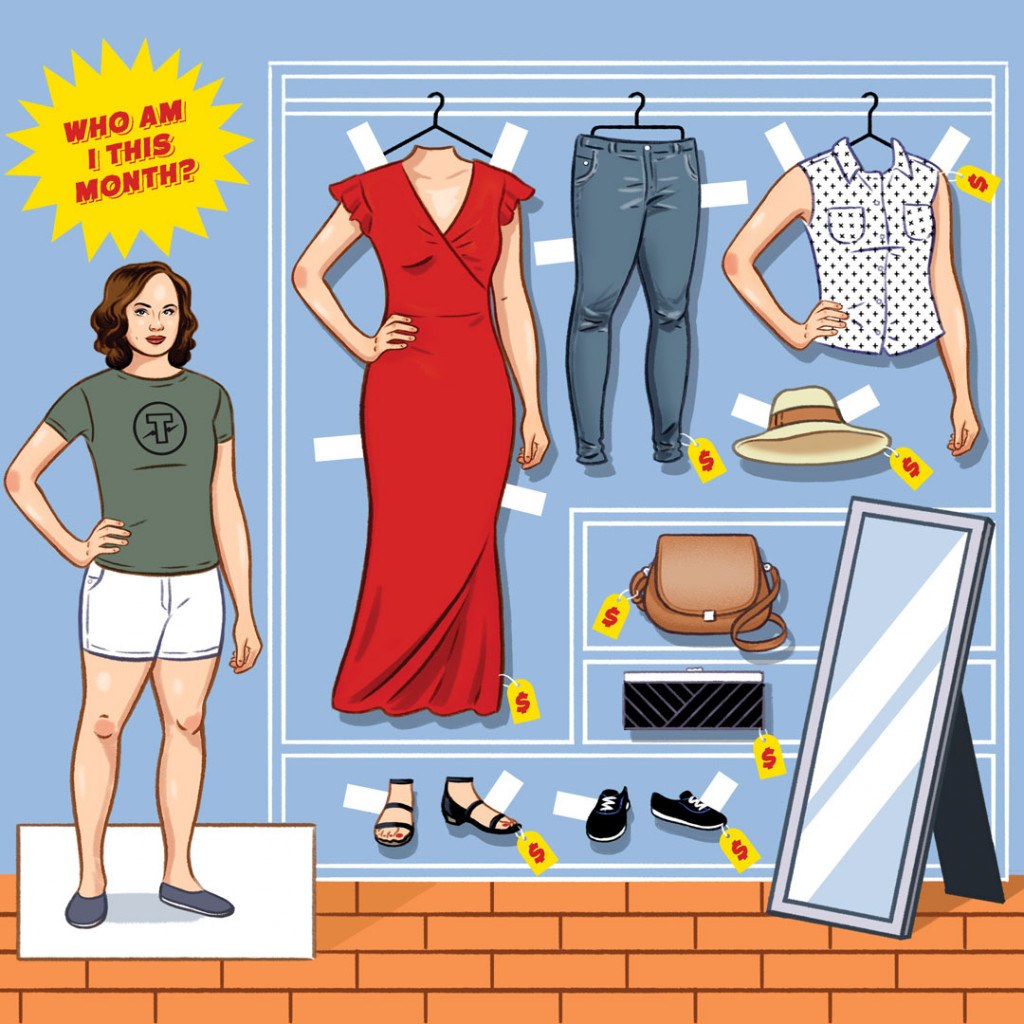Renting Your Wardrobe Is a Terrible Idea
You don’t just lose money; you lose your identity.

Renting clothes (and the rest of your life) isn’t what it’s cracked up to be. Illustration by Kyle Hilton
Once upon a time, if you wanted a new album or movie, you had to go out and buy it. Then the internet happened, and everything was at your digital doorstep, ready to be downloaded. It was a switch in delivery, sure, but you still owned the thing you’d bought.
Today, even that’s changed. We stream movies; we no longer collect them. And in June, Apple announced it was killing iTunes, shifting further from MP3 downloads in favor of streaming. Now, most users won’t own their music — they’ll just borrow it whenever they want.
It’s a business model that makes sense for companies. Why sell something just once when you can rent it instead — and keep the customer coming back every month through a subscription?
Fashion is the latest industry to seize upon this “potential.” Rent the Runway — a site that lets you borrow high-fashion gowns and expensive accessories — was an early adopter, launching in 2009. But now, it seems like every basic brand (Vince, American Eagle) has a rental option. Philly’s own Urban Outfitters is the latest to join the list of clothing landlords with Nuuly, a company that charges $88 a month for the right to rent six pre-worn items. (You can buy them at the end of the month, if you so choose.)
It doesn’t take a Nobel laureate economist to see that this isn’t a good deal for the consumer. Rent the Runway, where you might borrow an expensive Jason Wu gown for a special occasion, is one thing. But most Urban wares are just affordable everyday clothes. Nuuly isn’t about accessibility. Instead, it’s about creating multiple revenue streams for a single item of clothing (translation: more profit). Indeed, one clothing rental executive recently boasted to the Wall Street Journal that her business has a 25 percent operating profit, compared to the single digits for conventional retailers.
To save face, the rental industry argues that it’s the sustainable alternative to purchasing clothes. But that’s a stretch, says Joe Hancock, director of the online retail program at Drexel. “The retailer still has to create fast fashion and latest and greatest in order for people want to rent their product,” he says. And it’s not as if Urban is renouncing all conventional clothing — it still makes plenty of that, too.
And money isn’t all you lose when you rent. “Clothing is your identity construction,” Hancock says. (See: your treasured worn-in leather brogues; that striped button-down you constantly return to.) But it’s hard to construct much of anything when as soon as you’ve hung your clothes in the closet, it’s time to return them. It might sound freeing to float untethered from one hip trend to the next, but in reality, it’s shapeless.
Maybe that’s why the New York Times called our present the “Gilded Age of renting.” Even if you look cool in your Nuuly wardrobe, you don’t actually own it. It’s just a veneer. And remember this: If you ever let your subscription lapse, you’ll be left with nothing — not even the clothes on your back.
Published as “Lease Your Life” in the September 2019 issue of Philadelphia magazine.


